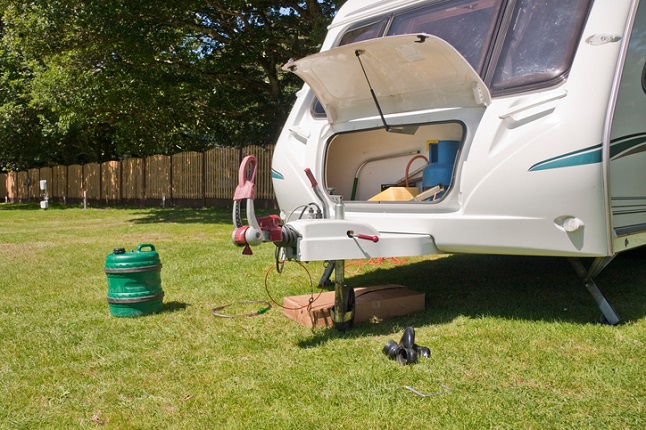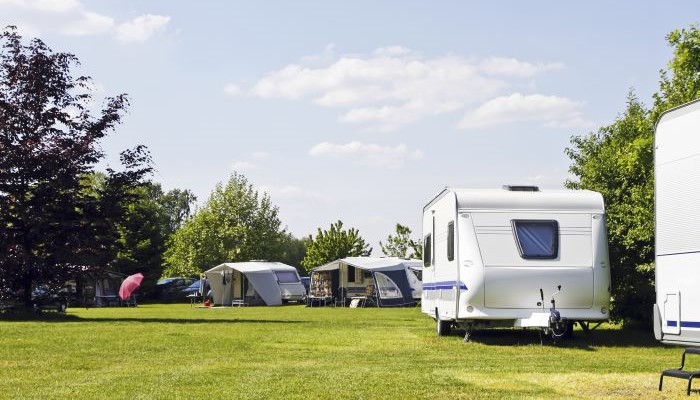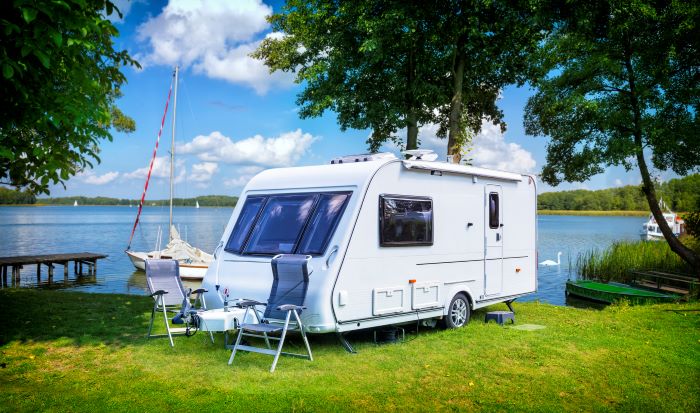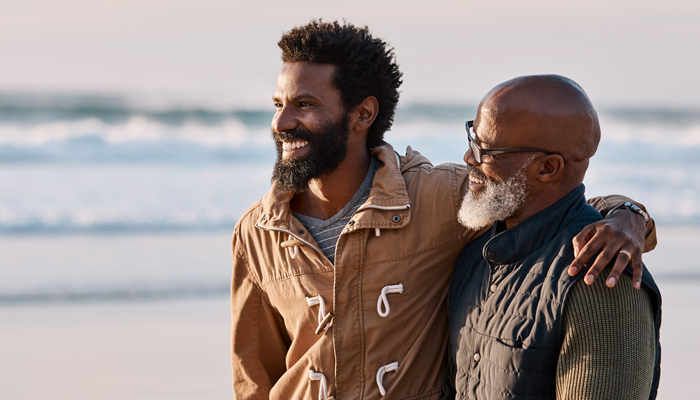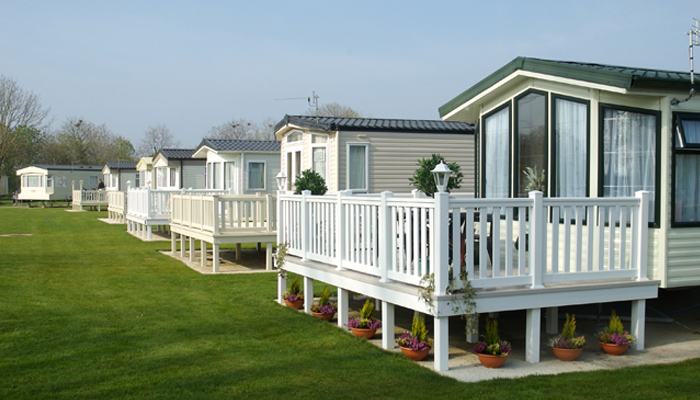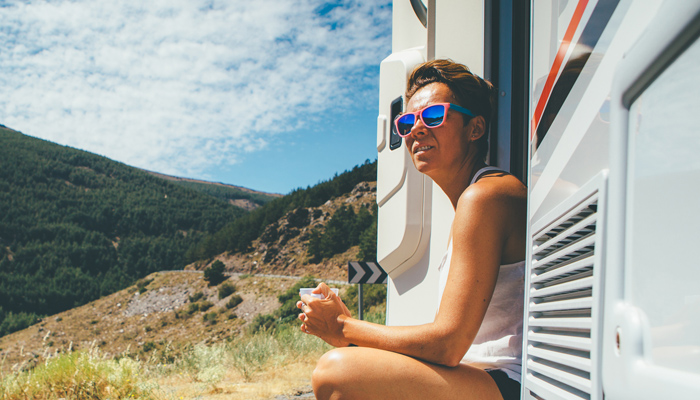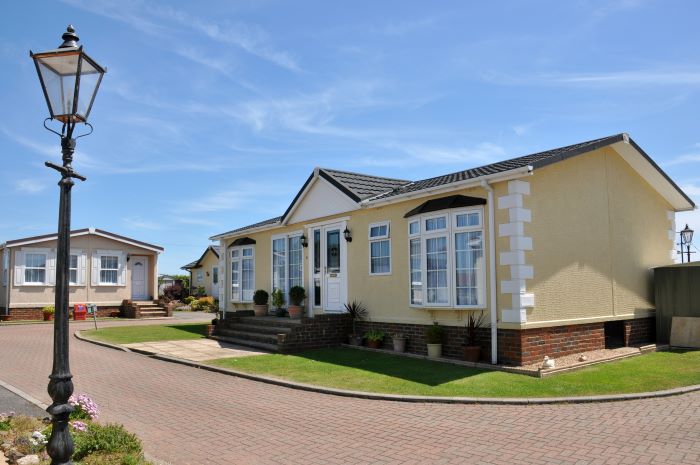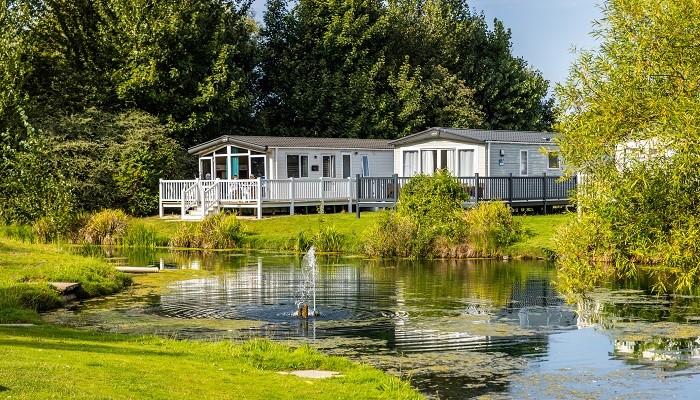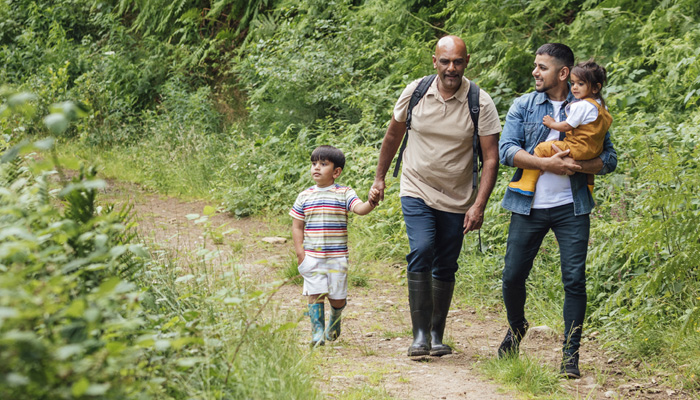Buying and Owning a Second-Hand Touring Caravan
Whether you're a seasoned pro or novice camper, read some tips for choosing, buying and caring for your used touring caravan.
What's in this guide?
Whether you’re looking to enjoy long-distance adventures in your retirement, or wanting a cosy base for family holidays, touring caravans give you the freedom to explore both near and far – with the comforts of home in tow.
Buying a second-hand caravan can be less expensive than investing in a new model, and if you’re new to caravanning, opting for a used model is a good way of deciding if the lifestyle is right for you. Read on to find out more about:
When is the best time of year to buy a caravan?
Between January and March, before new caravan models are released, dealers may offer competitive prices on any previous remaining models. Then from October to December dealers are sometimes happy to offer deals on any remaining existing stock, as new caravan sales tail-off. These can therefore be good times to shop for second-hand caravans.
Where to buy used touring caravans
Dealers
Visiting a dealer may be the best choice for buyers who are new to caravanning. They should be able to explain all you need to know, as well as offer a warranty.
Private sales
Look in caravan magazines, local papers and online classifieds. Private sales can be less expensive than using dealers, but you should take caution if you go down this route. Make sure the seller has all the correct documentation and do a thorough inspection of the van and its paperwork.
Manufacturers
From time to time, you might spot a refurbished high-end caravan on sale direct from the manufacturer. Check their websites for bargains and call their sales lines during low season.
Auctions
Auctions might not be your first port of call for a second-hand bargain but check in with your local auction house to see if any of their upcoming lots are caravans. Larger auction houses such as BCA have some specialist sales so be sure to explore them as an option.
The best second-hand caravans to buy
If you're buying a caravan for the first time, a simpler, second-hand model may suit you best. If you purchase a less expensive model with fewer gizmos and gadgets, it is often easier to learn your way around and you will have some pennies to play with if the romance doesn’t last.
The UK is a leading caravan manufacturer, and brands such as Bailey, Coachman and Lunar sell thousands of mid-range mass-market models every year. If you opt for a popular manufacturer, you’ll find advice and support in a flash, while spare parts and accessories are easy to track down too.
Choosing the size of your caravan depends on how many people you plan to sleep, though novices may benefit from a lightweight, low-maintenance van to begin with. As your budget and confidence increases, progressing to larger, high-tech models might be the way you want to go.
What to look for when buying a used caravan
When purchasing anything second-hand, it’s always a good idea to give everything a thorough check over. Here are some tips.
Condition of the van
It's essential to check that the caravan mechanics and bodywork are in good working order. Is there visible damage, for example? Has previous repair work been completed well? Is it safe and legal to drive on the road? Pay close attention both inside and out and make a note of any immediate and potential problems you see.
Exterior
- Visible damage to the doors, windows and locks
- Check the breaks, tyres and wheels for damage
- Is the running gear in good repair? This includes the brakes, breakaway cable, lights, stabilisers and suspension
Interior
- Test all the beds and seating for support
- Check the floor – is there warping or delamination that you can see?
- Test and look for signs of damp – you can buy a damp meter from most hardware stores
- Inspect the toilet for leaks
- Look for cracks in the ceiling and joints
- Check electrics, plumbing and gas pipework for wear and tear
Asking price
Used caravan prices will fluctuate depending on a whole host of factors, and you’ll also need to remember to factor in insurance, annual servicing and equipment on top. If you’re not convinced that a van’s price reflects its value, get researching: visit multiple dealers and compare with online listings to help you decide whether the price is fair.
Finding the best dealers
The best place to get advice is usually from other caravan owners, who can recommend good dealers they know. Read online reviews or get in touch with caravan members’ clubs for their suggestions.
Is it stolen?
There is, sadly, a market for stolen caravans, and if you buy one by mistake, you can’t be insured. It is therefore strongly advised to carry out a stolen caravan check on the Central Registration and Insurance Scheme website.
I’m new to caravanning – what do I need?
Driver’s licence
As well a standard driver's licence, you may need an extra qualification to tow your caravan, depending on both the size and when you passed your test.
Insurance
Find caravan insurance that is right for your usage, the destinations you plan to visit and the size and features of your van.
Essential equipment
- A number plate and towing mirror – both are legal requirements
- Corner steady jack
- Wheel clamp or hitch lock
- Water pump and purification tablets
- Gas bottle, battery and mains lead
- Fire extinguisher
- First aid kit
- Smoke alarm
Club membership
Not essential, but nice to have: some caravan clubs offer members’ discounts at official and exclusive camp sites, plus additional support and advice.
Caravan care
So, you’ve found and bought the van for you. Now follow our caravan care tips to help keep your vehicle safe, clean and comfortable for years to come.
Servicing a caravan
You should get your caravan serviced at least once per year by a firm on the Approved Workshop Scheme – many insurers and manufacturer warranties demand it. Check the websites of your local workshop for prices.
DIY caravan servicing
A full caravan service – and any work on the electrics, brakes, and bodywork – is best left to a professional, but over the course of the year, you should carry out some of your own servicing and repairs too. The main things you’ll need to check are:
- Road lights
- Electrical connections between the caravan and car
- Tyre pressure before each trip
- Wheel rims for kerb damage
- Damp and ingress
- Tightness of wheel nuts
- Condition of water hoses
- Condition of the breakaway clip
- Gas safety
General caravan maintenance tips
On a more regular basis, aim to:
- Clean the external bodywork
- Prevent damp and remove any mould
- Check the fridge, heater, oven and gas for leaks
- Repair damage to upholstery
- Clean pipes
- Monitor battery levels
Winterising your caravan
Once winter arrives, most owners put their van away for storage. When leaving the caravan unattended for a few months, you should ensure it stays safe and in good working order, so you can start using it straight away come spring.
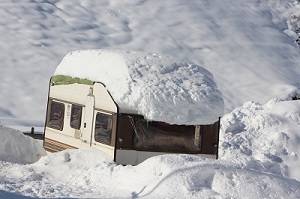
- Store your caravan in a safe place – on your property or in a caravan storage facility
- Remove valuables, lock the doors, and apply wheel clamps and a hitch lock
- Avoid damage from the elements by covering the bodywork
- Drain water and gas systems – this will avoid burst pipes and leaks
- Empty the toilet and clean out the waste water tank
- Vacuum clean the inside of the caravan
- Store all loose fabrics and curtains somewhere dry
Ready to hit the road
Owning a caravan gives you amazing opportunities for flexible, affordable and exciting travel. By opting for a second-hand caravan, it is possible to gain many benefits at a reduced price. That said, there are some important things to watch out for when buying a used caravan, so making sure you’ve done your research will give you peace of mind that your new home-from-home can be everything you hoped for and more.
Date: August 30, 2017
Category: Caravan




